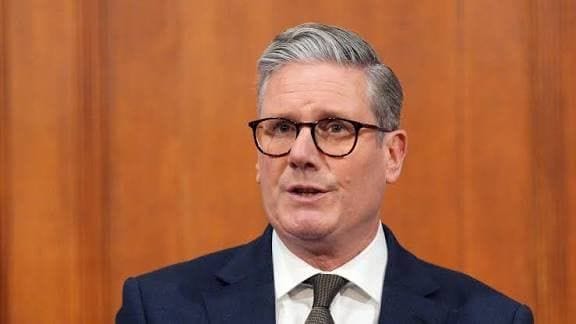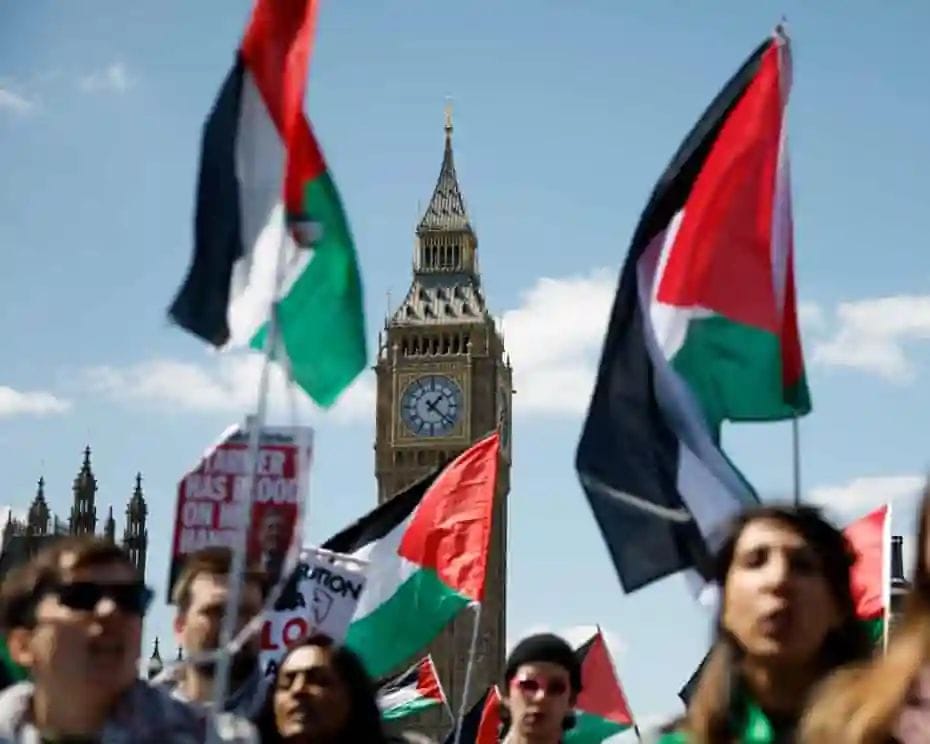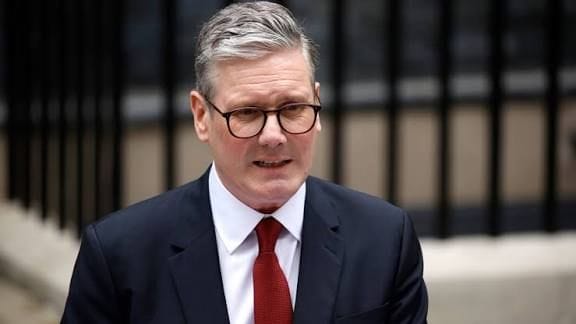Prime Minister Keir Starmer has said that the right to peaceful protest is central to British democracy, but warned that violence, intimidation and assaults on police officers will not be tolerated.
In a statement shared on Facebook, Mr Starmer stressed that while every citizen has the right to demonstrate peacefully, the government will not stand by if individuals use protests as a cover for aggression or hate.
“People have a right to peaceful protest. It is core to our country’s values,” the Prime Minister said. “But we will not stand for assaults on police officers doing their job or for people feeling intimidated on our streets because of their background or the colour of their skin.”

Violence at London rally
The comments come in the wake of a weekend rally in London, branded “Unite the Kingdom” and fronted by far-right activist Tommy Robinson. The event drew crowds of more than 100,000, according to estimates, and was followed by a counter-protest of around 5,000 people organised by the campaign group Stand Up to Racism.
What began as demonstrations quickly descended into disorder. Police reported clashes between the two groups, with bottles and other projectiles thrown, and attempts made to breach police lines.
The Metropolitan Police confirmed that 26 officers were injured, four of them seriously, as they attempted to keep rival groups apart. At least two dozen arrests were made for offences including assault and violent disorder.
Assistant Commissioner Matt Twist described the violence as “unacceptable,” warning that officers should never be targets during demonstrations intended to be lawful expressions of opinion.
Defending tolerance and a diverse Britain
Mr Starmer used his statement to underline Britain’s long history as a diverse Britain with a tradition of openness and fairness. He said the nation’s identity must not be hijacked by those who seek to divide.
“Britain is a nation proudly built on tolerance, diversity and respect. Our flag represents our diverse country and we will never surrender it to those that use it as a symbol of violence, fear and division,” he said.
The Prime Minister added that demonstrations must be lawful, safe and rooted in democratic principles. While peaceful protest remains a right, he argued, any attempt to weaponise national symbols or spread intimidation undermines the freedoms protesters claim to defend.
National flag unity
The rallies also reignited debates around the use of national flags in political demonstrations. Critics said the St George’s Cross and Union Jack were being misused as emblems of exclusion, rather than unity.
For Starmer, reclaiming the meaning of those symbols is crucial. He urged the public to see the Union Jack and St George’s Cross as belonging to every citizen, regardless of race or background, and called for national flag unity as a symbol of togetherness rather than fear.
Political analysts suggest his words reflect wider concerns about polarisation in the UK, where identity, migration and cultural change are increasingly flashpoints.
Balancing rights and responsibility
The Prime Minister’s call reflects a broader challenge: ensuring that Britain remains a country where freedom of expression and peaceful protest thrive, while preventing public order from breaking down.
Civil liberties groups have long defended the right to protest as a pillar of democracy. Yet, there is also widespread agreement that violence against police or the public undermines that right.
The government has pledged that those responsible for violent disorder will be prosecuted. The Metropolitan Police confirmed that further arrests are likely as investigations continue, with body-worn video and social media footage being reviewed.
Campaigners on both sides of the protests say the coming weeks will test Britain’s capacity to uphold civil liberties while maintaining order. For the Prime Minister, the principle is straightforward: peaceful protest will always be protected, but violence and racial intimidation will face a firm response.
“Freedom to protest is not freedom to intimidate,” Mr Starmer concluded. “And it is never freedom to attack those who serve and protect our communities.”onsibility, Mr Starmer is seeking to draw a clear line — one that permits robust dissent but rejects extremism.
More news at Swiftreportnow


